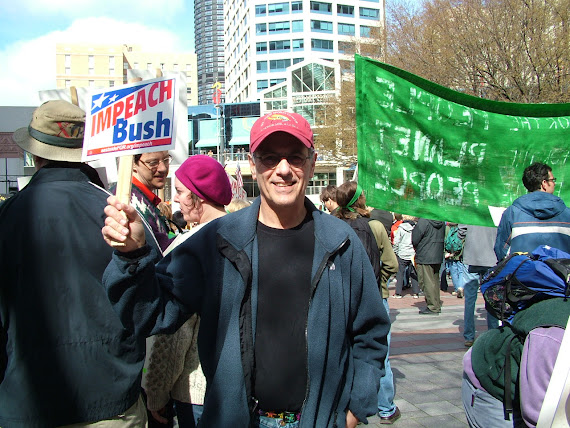The Fourth Amendment provides that “[t]he right of the people to be secure in their persons, houses, papers, and effects, against unreasonable searches and seizures, shall not be violated ....” U.S. Const. amend. IV. A person may have a legitimate expectation of privacy in places other than his home. No less than a tenant of a house, or the occupant of a room in a boarding house, McDonald v. United States, 335 U.S. 451, 69 S.Ct. 191, 93 L.Ed. 153, a guest in a hotel room is entitled to constitutional protection against unreasonable searches and seizures. Stoner v. California, 376 U.S. 483, 490, 84 S.Ct. 889, 893 (1964); Johnson v. United States, 333 U.S. 10, 68 S.Ct. 367, 92 L.Ed. 436 (1948).
Since the Fourth Amendment protects persons, not places, its protections follow wherever a person has a legitimate expectation of privacy. Minnesota v. Olson, 495 U.S. 91, 96 & n. 5, 110 S.Ct. 1684, 1688 & n. 5, 109 L.Ed.2d 85 (1990); Katz v. United States, 389 U.S. 347, 351, 88 S.Ct. 507, 19 L.Ed.2d 576 (1967). In Arkansas v. Sanders, 442 U.S. 753, 99 S.Ct. 2586, 61 L.Ed.2d 235 (1979) the Court noted that “luggage is a common repository for one's personal effects, and therefore is inevitably associated with the expectation of privacy.” Sanders, 442 U.S. at 762, 99 S.Ct. at 2592, 61 L.Ed.2d at 244.
Although the Fourth Amendment limits searches conducted by the government, and not those conducted by a private party, if the private party acts as an “instrument or agent” of the government, the search is a governmental search and is protected by the Warrant Clause. See Walter v. United States, 447 U.S. 649, 656, 100 S.Ct. 2395, 65 L.Ed.2d 410 (1980); United States v. Young, 153 F.3d 1079, 1080 (9th Cir.1998).
A private search triggers the application of the Fourth Amendment if federal agents instigate, orchestrate, encourage or exceed the scope of the private search. See United States v. Souza, 223 F.3d 1197, 1201 -1202 (10th Cir.2000). A defendant challenging a search conducted by a private party bears the burden of showing the search was governmental action. United States v. Cleaveland, 38 F.3d 1092, 1093 (9th Cir.1995); United States v. Reed, 15 F.3d 928, 931 (9th Cir.1994).
Whether a search is governmental or private depends on: (1) whether the government knew of and acquiesced in the intrusive conduct; and (2) whether the party performing the search intended to assist law enforcement efforts or further the party's own ends. See Young, 153 F.3d at 1080; United States v. Cleaveland, 38 F.3d 1092, 1093 (9th Cir.1995); United States v. Reed, 15 F.3d 928, 931 (9th Cir.1994); United States v. Walther, 652 F.2d 788, 792 (9th Cir.1981). A search is only private if the government is not involved either directly as a participant or indirectly as an encourager. United States v. Gumerlock, 590 F.2d 794, 800 (9th Cir.1979).
Saturday, February 16, 2008
Sunday, February 3, 2008
Update From The Cultural War's Frontlines
On Friday Judge Michael Mosman (D. OR) withdrew his ill advised December 2007 stay that had prevented Oregon's domestic partnership law from going into effect. Those who oppose domestic partnerships and same sex marriages worst fears may soon be realized. On the same day a New York state appeals court ruled that the state must legally recognize valid out-of-state same sex marriages.
Sunday, January 20, 2008
Belarus Editor Jailed For Islam Cartoon
According to the AP, a Belarus court sentenced a newspaper editor last Friday to three years in prison for reprinting a caricature of the Prophet Muhammad that sparked worldwide riots when it was initially published in a Danish newspaper. The Minsk City Court imposed its sentence after a closed-door trial.
President Alexander Lukashenko ordered the small-circulation Zhoda newspaper shut in February 2006 when Alexander Sdvizhkov, the former deputy editor, published the caricatures which had originally appeared in the Danish newspaper Jyllands-Posten. Calling the publication of the cartoons "a provocation against the state," this past November President Lukashenko ordered Sdvizhkov's arrest on charges that he was "inciting religious hatred."
The President's action and the court's sycophantic secret trial and sentence makes little sense since the ex-Soviet republic of Belarus is overwhelmingly Orthodox Christian; less than 1 percent of the country's 10 million is Muslim. There is no friction between Russians and Muslims. Even Belarusian Islamic leader Ismail Voronovich called the sentence excessively harsh.
Many contend the real reason that Sdvizhkov was charged and convicted of this "crime" was that he continued to speak out against the dictatorial President Lukashenko, so Lukashenko dreamed up an excuse to imprison him.
President Alexander Lukashenko ordered the small-circulation Zhoda newspaper shut in February 2006 when Alexander Sdvizhkov, the former deputy editor, published the caricatures which had originally appeared in the Danish newspaper Jyllands-Posten. Calling the publication of the cartoons "a provocation against the state," this past November President Lukashenko ordered Sdvizhkov's arrest on charges that he was "inciting religious hatred."
The President's action and the court's sycophantic secret trial and sentence makes little sense since the ex-Soviet republic of Belarus is overwhelmingly Orthodox Christian; less than 1 percent of the country's 10 million is Muslim. There is no friction between Russians and Muslims. Even Belarusian Islamic leader Ismail Voronovich called the sentence excessively harsh.
Many contend the real reason that Sdvizhkov was charged and convicted of this "crime" was that he continued to speak out against the dictatorial President Lukashenko, so Lukashenko dreamed up an excuse to imprison him.
Inmate Transfers Under Prison Transfer Treaties
Under U.S. law (18 U.S.C. §§ 4100-4115) foreign nationals convicted of a crime in the U. S., and U. S. citizens or nationals convicted of a crime in a foreign country, may apply for a prisoner treaty transfer to their home country if a treaty providing for such transfer is in force between the U. S. and the foreign country involved.
The U. S. has 12 bilateral prisoner transfer treaties in force in the following countries: Bolivia, Canada, France, Hong Kong S.A.R., Marshall Islands, Mexico, Micronesia, Palau, Panama, Peru, Thailand and Turkey. In addition, the U. S. is a party to two multilateral prisoner transfer treaties, the Council of Europe Convention on the Transfer of Sentenced Persons (sometimes called the "COE Convention" or "Strasbourg Convention" after the city in which it was signed) and the Organization of American States Treaty (called the "OAS Treaty").
The U. S. has enacted legislation implementing all prisoner transfer treaties. See 18 USC §§ 4100 et seq. See also 28 CFR 2.62. Most prisoner treaty transfers between the U. S. and a foreign country involve Mexican and Canadian offenders who are incarcerated under federal and state statutes. Mexican and Canadian prisoners make up, by far, the largest segment of foreign inmates incarcerated in the U. S.
The decision to transfer or receive a prisoner under the prisoner treaty transfer system is a completely discretionary decision to be made by each country. The consent of the U.S. Government, the foreign government and the prisoner is required for each prisoner transfer. If the prisoner was convicted of a crime by a state in the U. S., and is serving a sentence in a state facility, consent of the state is also required.
The U. S. has 12 bilateral prisoner transfer treaties in force in the following countries: Bolivia, Canada, France, Hong Kong S.A.R., Marshall Islands, Mexico, Micronesia, Palau, Panama, Peru, Thailand and Turkey. In addition, the U. S. is a party to two multilateral prisoner transfer treaties, the Council of Europe Convention on the Transfer of Sentenced Persons (sometimes called the "COE Convention" or "Strasbourg Convention" after the city in which it was signed) and the Organization of American States Treaty (called the "OAS Treaty").
The U. S. has enacted legislation implementing all prisoner transfer treaties. See 18 USC §§ 4100 et seq. See also 28 CFR 2.62. Most prisoner treaty transfers between the U. S. and a foreign country involve Mexican and Canadian offenders who are incarcerated under federal and state statutes. Mexican and Canadian prisoners make up, by far, the largest segment of foreign inmates incarcerated in the U. S.
The decision to transfer or receive a prisoner under the prisoner treaty transfer system is a completely discretionary decision to be made by each country. The consent of the U.S. Government, the foreign government and the prisoner is required for each prisoner transfer. If the prisoner was convicted of a crime by a state in the U. S., and is serving a sentence in a state facility, consent of the state is also required.
Saturday, January 5, 2008
Exodus 21:23–27
This week the United States Supreme Court granted certiorari in Kennedy v. Louisiana (07-343), a case in which the Court will decide whether our evolving standards of justice and decency requires the Court to find that the death sentence constitutes cruel and unusual punishment when it is imposed upon a defendant for a crime in which the victim was not killed.
Although rare today, until the late mid-20th century several states, particularly those in the deep South, provided for the death penalty in cases other than murder. The most typical situation was when the charge was aggravated rape and the defendant was a black man and the victim was a white woman.
Patrick Kennedy was sentenced to death in Louisiana for raping a minor. The Louisiana Supreme Court upheld the death sentence. Although the Court’s conservatives still firmly support the death penalty, and the facts of the crime are aggravated, the death penalty appears to be on its final legs in the Western World and this should be a win for the defense as the liberal wing of the Court is likely to be joined by religious jurists, who will give more than lip service to the biblical belief in “an eye for an eye," Exodus 21:23-27, and hold that death is only an appropriate sanction when death is the result.
Although rare today, until the late mid-20th century several states, particularly those in the deep South, provided for the death penalty in cases other than murder. The most typical situation was when the charge was aggravated rape and the defendant was a black man and the victim was a white woman.
Patrick Kennedy was sentenced to death in Louisiana for raping a minor. The Louisiana Supreme Court upheld the death sentence. Although the Court’s conservatives still firmly support the death penalty, and the facts of the crime are aggravated, the death penalty appears to be on its final legs in the Western World and this should be a win for the defense as the liberal wing of the Court is likely to be joined by religious jurists, who will give more than lip service to the biblical belief in “an eye for an eye," Exodus 21:23-27, and hold that death is only an appropriate sanction when death is the result.
Subscribe to:
Comments (Atom)

